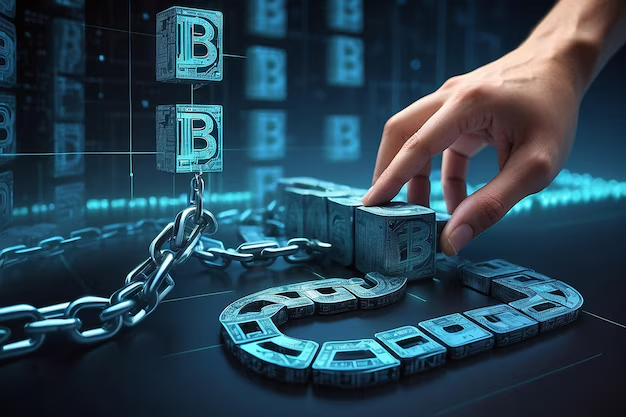As blockchain technology continues to reshape industries across the globe, new and exciting career opportunities are emerging. The decentralized nature of blockchain has given rise to a wide range of innovative applications, from cryptocurrencies like Bitcoin and Ethereum to supply chain management, healthcare, voting systems, and more. With its growing influence, the demand for skilled professionals in blockchain technology is skyrocketing. For those looking to future-proof their careers, blockchain jobs represent a unique and lucrative opportunity.
In this article, we will explore the various blockchain-related job roles, the skills required to succeed in this emerging field, and why blockchain technology is poised to change the future of work. Whether you are a tech enthusiast, a developer, or someone exploring a career change, this guide will help you understand the key job opportunities in the blockchain industry and how to get started.
Key Takeaways
- Blockchain technology is revolutionizing industries and creating diverse career opportunities.
- Blockchain jobs range from developers and architects to consultants, security experts, and legal professionals.
- Core skills for blockchain careers include technical proficiency, problem-solving, and soft skills.
- The demand for blockchain professionals is growing, making it a promising field for future career growth.
- Getting started in blockchain involves learning the basics, pursuing advanced certifications, and gaining hands-on experience through projects.
- Blockchain jobs offer competitive salaries and the potential for high-impact roles in the evolving digital landscape.
Understanding Blockchain Technology

Before diving into blockchain job opportunities, it’s crucial to grasp the fundamentals of blockchain technology itself. Blockchain is a decentralized, distributed ledger that records transactions across many computers in a way that prevents alteration or tampering. Every transaction is added to a “block,” and once the block is full, it is appended to the chain of previous blocks, forming an immutable and transparent ledger.
The technology behind blockchain has multiple applications, including cryptocurrencies, smart contracts, supply chain tracking, secure voting systems, and more. With its promise of security, transparency, and decentralization, blockchain is rapidly becoming the backbone of digital innovation across various sectors.
Types of Blockchain Jobs
As blockchain technology grows, so do the career opportunities. Below are some of the most common blockchain job roles and what they entail.
Blockchain Developer
A blockchain developer is one of the most sought-after roles in the blockchain industry. These professionals are responsible for designing, developing, and maintaining blockchain systems. There are two main types of blockchain developers:
- Core blockchain developers who create the architecture and underlying protocols of the blockchain.
- Blockchain application developers who build decentralized applications (DApps) on top of existing blockchain platforms.
Skills Required:
- Strong knowledge of programming languages such as Java, C++, Python, and Solidity (for Ethereum-based blockchain).
- Deep understanding of consensus algorithms (Proof of Work, Proof of Stake, etc.).
- Knowledge of cryptography, data structures, and algorithms.
Blockchain Architect
Blockchain architects design the structure of blockchain networks, ensuring they are scalable, secure, and efficient. They are responsible for understanding both the technical and business requirements of a blockchain network and turning those requirements into a workable, robust architecture.
Skills Required:
- Experience in blockchain frameworks such as Hyperledger, Ethereum, or Corda.
- Expertise in system architecture, design patterns, and integration techniques.
- Strong programming and problem-solving abilities.
Blockchain Consultant
A blockchain consultant is someone who helps businesses integrate blockchain technology into their operations. They evaluate the potential of blockchain for solving business problems, recommend blockchain solutions, and oversee the implementation process. This role requires a blend of technical and business knowledge.
Skills Required:
- In-depth understanding of blockchain technology and its applications.
- Excellent problem-solving and communication skills.
- Familiarity with various blockchain platforms and their use cases.
Blockchain Project Manager
Blockchain project managers are responsible for overseeing the planning, execution, and successful delivery of blockchain projects. They manage teams of blockchain developers, architects, and other professionals to ensure that projects are completed on time and within budget.
Skills Required:
- Strong project management experience, ideally in agile environments.
- Knowledge of blockchain development processes.
- Leadership, communication, and organizational skills.
Blockchain Security Expert
Security is one of the most important aspects of blockchain, and as a blockchain security expert, your role is to protect blockchain networks from attacks and vulnerabilities. This could involve performing security audits, identifying weak points in blockchain systems, and implementing encryption techniques to protect user data.
Skills Required:
- Knowledge of encryption techniques and security protocols.
- Experience in performing vulnerability assessments and penetration testing.
- Deep understanding of blockchain protocols and their vulnerabilities.
Blockchain Legal Expert
Blockchain technology is often associated with regulatory challenges, especially in industries like finance and healthcare. Blockchain legal experts are responsible for navigating these challenges, advising organizations on the legal implications of using blockchain technology, and ensuring compliance with regulations such as data privacy laws.
Skills Required:
- Legal knowledge, especially in areas related to intellectual property, contracts, and regulations.
- Understanding of blockchain and cryptocurrency regulations in different countries.
- Strong research and communication skills.
Blockchain Content Creator
Blockchain content creators help educate the public about blockchain technology through articles, blogs, videos, and social media. These professionals help bridge the knowledge gap by breaking down complex blockchain concepts into digestible, easy-to-understand content for a wide audience.
Skills Required:
- Strong writing and communication skills.
- Basic knowledge of blockchain and cryptocurrency concepts.
- Creativity and the ability to produce engaging content.
Skills Required for Blockchain Jobs

While the skills required vary depending on the role, there are several core skills that are essential for most blockchain jobs. These include:
Technical Skills
For most blockchain jobs, especially development and architecture roles, technical skills are critical. You will need proficiency in programming languages (such as Java, Python, Solidity, and Go), an understanding of cryptography, consensus algorithms, and familiarity with blockchain platforms like Ethereum, Hyperledger, and Corda.
Problem-Solving and Analytical Thinking
Blockchain technology is still evolving, which means that professionals must possess strong problem-solving abilities to overcome technical and business challenges. Blockchain professionals need to analyze complex data, identify patterns, and develop creative solutions to problems.
Soft Skills
While technical skills are essential, soft skills are just as important in the blockchain industry. Strong communication, teamwork, and leadership abilities will help you work effectively in a team, collaborate with stakeholders, and present blockchain solutions to clients and customers.
Knowledge of Industry Use Cases
Understanding how blockchain applies to different industries is key to excelling in this field. Knowledge of specific use cases in areas such as finance, healthcare, supply chain management, and voting systems will set you apart as a blockchain professional.
How to Get Started in Blockchain Careers
For those who are eager to break into the blockchain industry, here are some steps you can take:
Learn the Basics of Blockchain
Begin by learning the fundamental concepts of blockchain technology. There are many free online resources, courses, and certifications available. Websites like Coursera, Udemy, and edX offer beginner-friendly blockchain courses.
Take Advanced Courses and Certifications
Once you grasp the basics, move on to more advanced blockchain courses and certifications. Many organizations offer specialized certifications for blockchain developers, architects, and consultants, which will enhance your credibility and career prospects.
Participate in Blockchain Communities
Join blockchain communities, both online and offline. Platforms like GitHub, Reddit, and Stack Exchange offer forums where developers and professionals discuss the latest trends, solve problems, and collaborate on projects.
Build Projects and Gain Practical Experience
To gain hands-on experience, consider building your own blockchain applications or contributing to open-source blockchain projects. Practical experience is highly valued in the blockchain industry.
Network with Industry Professionals
Attend blockchain conferences, webinars, and meetups. Networking with professionals in the industry can help you gain valuable insights and even lead to job opportunities.
Also Read : Blockchain Course For Beginners: Your Guide To Understanding Digital Ledgers
Conclusion
The blockchain industry is rapidly growing, and with it comes a wealth of career opportunities. From developers and architects to consultants and legal experts, the demand for blockchain professionals is soaring. Blockchain technology is revolutionizing industries and creating a new paradigm for decentralized systems, offering exciting prospects for those willing to learn and adapt.
Whether you are new to the world of blockchain or looking to shift your career focus, this dynamic field offers tremendous potential for innovation, growth, and success. By acquiring the right skills, gaining hands-on experience, and networking within the blockchain community, you can secure your place in the future of work.
FAQs
What skills are required for a blockchain job?
Skills vary by role, but core skills include programming languages (e.g., Python, Java, Solidity), cryptography, understanding of blockchain platforms (e.g., Ethereum), problem-solving, and soft skills like communication and leadership.
Are blockchain jobs only for developers?
No, blockchain offers various career opportunities beyond development, including project management, legal expertise, security analysis, consulting, and content creation.
How much can blockchain professionals earn?
Salaries vary based on experience and role. Blockchain developers and architects can earn six-figure salaries, while blockchain consultants, security experts, and legal professionals also enjoy competitive pay.
Is blockchain a good career choice?
Yes, blockchain is one of the most promising fields for the future. With industries increasingly adopting decentralized technologies, the demand for blockchain professionals is expected to continue growing.
Do I need a computer science degree to work in blockchain?
While a computer science degree can be beneficial, it’s not strictly required. Many blockchain professionals come from diverse backgrounds, and practical experience, coding skills, and certifications are highly valued.
What industries are using blockchain technology?
Blockchain is being used in finance, healthcare, supply chain management, voting systems, insurance, and more. Its decentralized nature offers increased transparency, security, and efficiency.
How can I start learning blockchain?
Begin with online resources, courses, and certifications. Practical experience through personal projects or contributing to open-source blockchain projects is also valuable.




